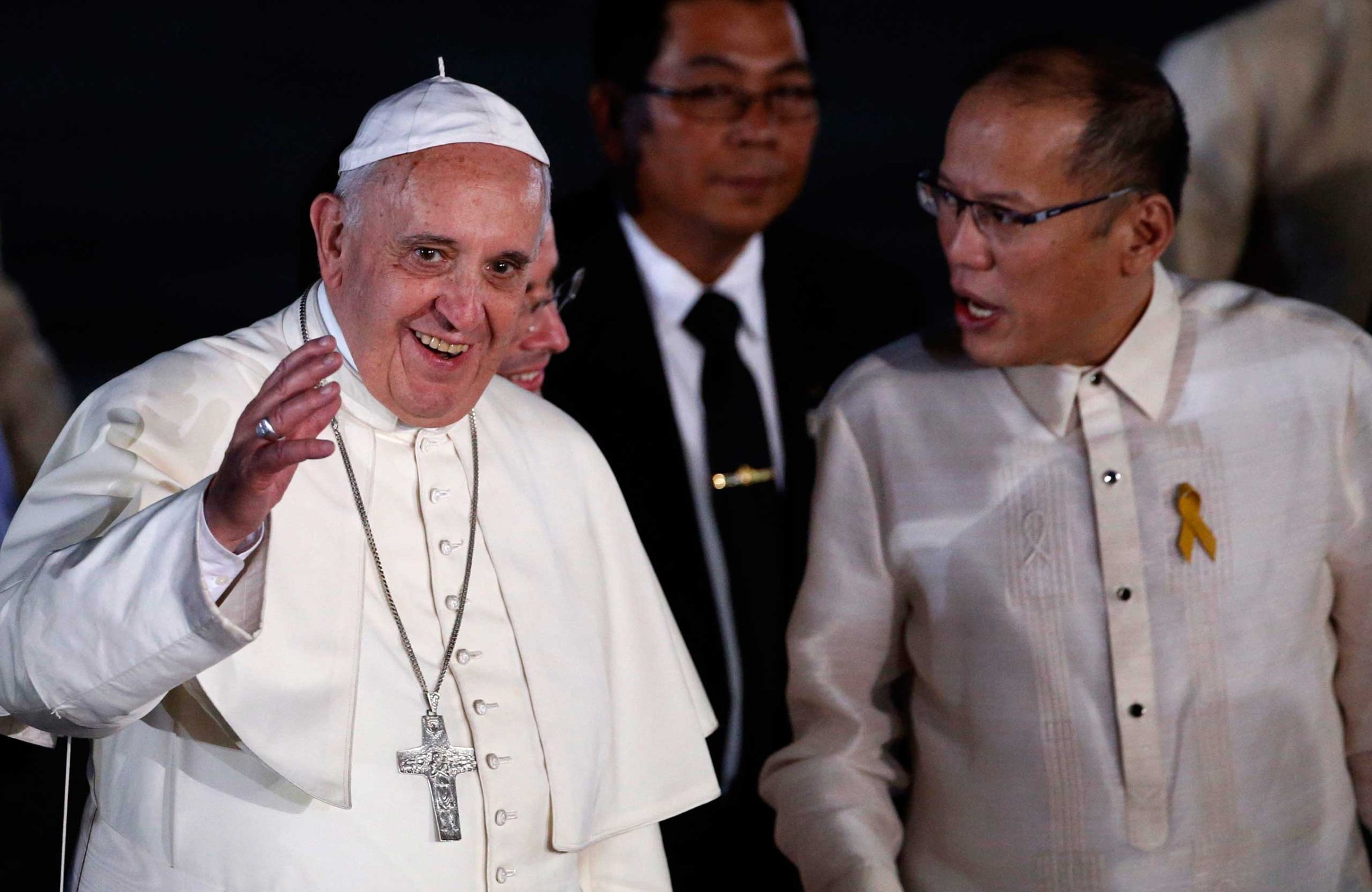
You know the expression, more Catholic than the Pope? Well, the Philippines, more than any other country, comes close. More than 80% of the former Spanish colony’s population — or about 70 million people — are Catholic, and the Church still holds considerable sway in matters of state. It is the only country outside the Vatican City, for instance, where divorce is illegal. When Pope John Paul II visited in 1995, he was greeted like a rock star; a record-breaking 5 million people attended his Manila mass.
Now it’s Pope Francis’ turn for a grand tour of Asia’s most Catholic nation. He lands in the Philippines Thursday evening, local time, to start a four-day visit. His itinerary includes a trip to the area hit by Typhoon Haiyan (known locally as Yolanda), and a mass in the capital, Manila, on Sunday. Local authorities are expecting a millions-strong gathering, despite concerns about security (more on that here) and the possibility of torrential rain.
If previous visits are any indication, it’s going to be a party. Filipinos are convening on the capital from across the country and around the world. Many will stand in line for days for the chance to see him. If they don’t they can still buy all manner of Pope merchandise — from stamps to t-shirts to commemorative children’s books. Odds are good that the crowds will at some point burst into the event’s official song.
Amid all the pageantry, Filipinos will be listening closely for Pope Francis’ perspective on issues of national concern. Although the Philippines is still heavily influenced by Church thinking — gay marriage is banned; abortion is illegal — over the last decade or so, there has been a move away from a hard-line stance on the use of modern methods of contraception, such as condoms and birth control pills.
For years, even as contraception became the norm elsewhere, the country’s Catholic establishment remained firmly opposed to the use any type of prophylactic, casting condoms as anti-Filipino and an affront to God’s will. In 2000, the mayor of Manila effectively banned the distribution of condoms in government hospitals and clinics.
In 2012, after more than a decade of debate, the government finally passed a national family planning bill. It was victory for rights campaigners and women’s groups, and the fulfillment of a campaign promise for President Benigno Aquino III, but remains deeply unpopular among conservatives.
With a Pope in town for the first time in 10 years, Filipinos will be keen to hear his thoughts on this and other questions. Much has changed in Filipino society since 1995; their love for the Pope has not.
More Must-Reads From TIME
- The 100 Most Influential People of 2024
- Coco Gauff Is Playing for Herself Now
- Scenes From Pro-Palestinian Encampments Across U.S. Universities
- 6 Compliments That Land Every Time
- If You're Dating Right Now , You're Brave: Column
- The AI That Could Heal a Divided Internet
- Fallout Is a Brilliant Model for the Future of Video Game Adaptations
- Want Weekly Recs on What to Watch, Read, and More? Sign Up for Worth Your Time
Write to Emily Rauhala at emily_rauhala@timeasia.com